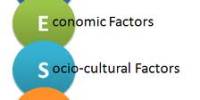TQM, also known as Total Quality Control (TQC), is a management tool for improving total performance. TQC means organized Kaizen activities involving everyone in a company – managers and workers – in a totally systemic and integrated effort toward improving performance at every level. It is to lead to increased customer satisfaction through satisfying such corporate cross-functional goals as quality, cost, scheduling, manpower development, and new product development. In Japan, TQC activities are not limited to quality control only. Elaborate system of Kaizen strategies has been developed as management tools within the TQC approach. TQC in Kaizen is a movement aimed at improvement of managerial performance at all levels.
According to the Japan Industrial Standards, “implementing quality control effectively necessitates the cooperation of all people in the company, including top management, managers, supervisors, and workers in all areas of corporate activities such as market research and development, product planning, design, preparation for production, purchasing, vendor management, manufacturing, inspection, sales and after-sale services, as well as financial control, personnel administration, and training & education. Quality control carried out in this manner is called company-wide quality control or total quality control (TQC).” Quality control in Japan deals with quality of people. It is the fundamental concept of the Kaizen-style TQC. Building quality into its people brings a company a half-way towards producing quality products.
















